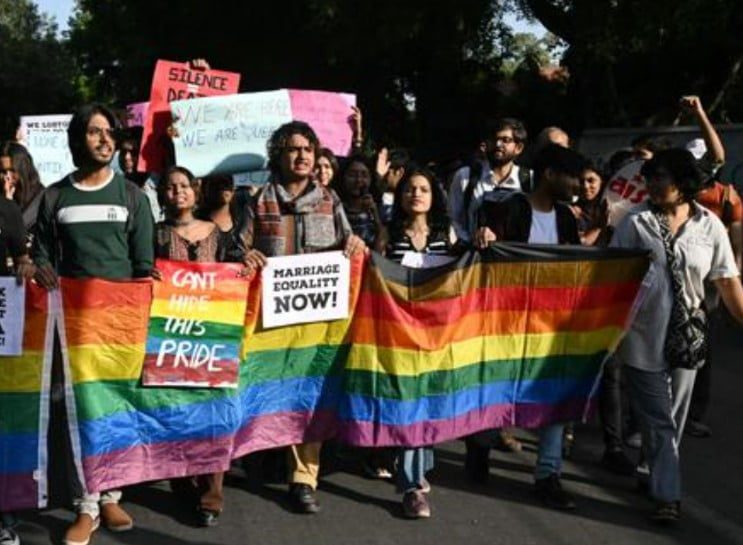Chief Justice D.Y. Chandrachud of the Supreme Court of India has agreed to deliberate on requests by legal advocates for an open courtroom hearing of the Constitution Bench’s review of its majority decision that declined to legalize same-sex marriage. This significant development underscores the heightened public interest and legal intricacies surrounding the issue.
Background of the Case
The original judgment, pronounced in October of the previous year by a Constitution Bench including Justices S.K. Kaul and S. Ravindra Bhat, has since been a focal point of debate. The retirement of Justices Kaul and Bhat has prompted their replacement on the Bench by Justices Sanjiv Khanna and B.V. Nagarathna.
Request for Open Court Hearing
During the recent oral mentioning hour, senior advocates like Mukul Rohatgi and Neeraj Kishan Kaul, alongside advocates Menaka Guruswamy, Karuna Nundy, and Arundhati Katju, passionately advocated for the review to be conducted openly in court. Their plea emphasized the paramount public interest inherent in the issue of same-sex marriage rights.
Legal Arguments and Petitions
The review petitions contend that the original judgment imposes undue burdens on queer couples, compelling them to conceal their identities and live inauthentic lives. While acknowledging the discrimination faced by queer individuals, the majority judgment deferred any judicial remedy, leaving the fate of the community to legislative discretion.
Judicial Standpoint and Legislative Domain
In its ruling last October, the Supreme Court cited its reluctance to encroach upon the legislative prerogative of the Parliament in matters pertaining to marriage laws. It suggested that Parliament, as the representative body, should address the legal status of same-sex marriages through legislative action.
Critique and Contradictions
Critics of the majority judgment argue inconsistencies within its reasoning. Despite acknowledging the social significance of marriage under the Special Marriage Act of 1954, the Bench concluded that marriage norms were largely independent of state intervention. The review petitions urge the Bench to integrate same-sex marriages within the purview of existing legal frameworks.
Fundamental Rights and Legal Obligations
Emphasizing the fundamental right to marry as enshrined in the Constitution, the review petitions challenge the exclusion of same-sex marriages under the antiquated provisions of the 1954 Act. They contend that true equality and dignity for the queer community remain elusive without judicial intervention to rectify historical injustices.
Conclusion
The forthcoming deliberations led by Chief Justice Chandrachud will likely shape the trajectory of LGBTQ+ rights in India’s legal landscape. As the court prepares to reconsider its stance on same-sex marriage, the nation awaits a pivotal decision that could redefine notions of equality and justice for generations to come.
Soumya Smruti Sahoo is a seasoned journalist with extensive experience in both international and Indian news writing. With a sharp analytical mind and a dedication to uncovering the truth, Soumya has built a reputation for delivering in-depth, well-researched articles that provide readers with a clear understanding of complex global and domestic issues. Her work reflects a deep commitment to journalistic integrity, making her a trusted source for accurate and insightful news coverage.



